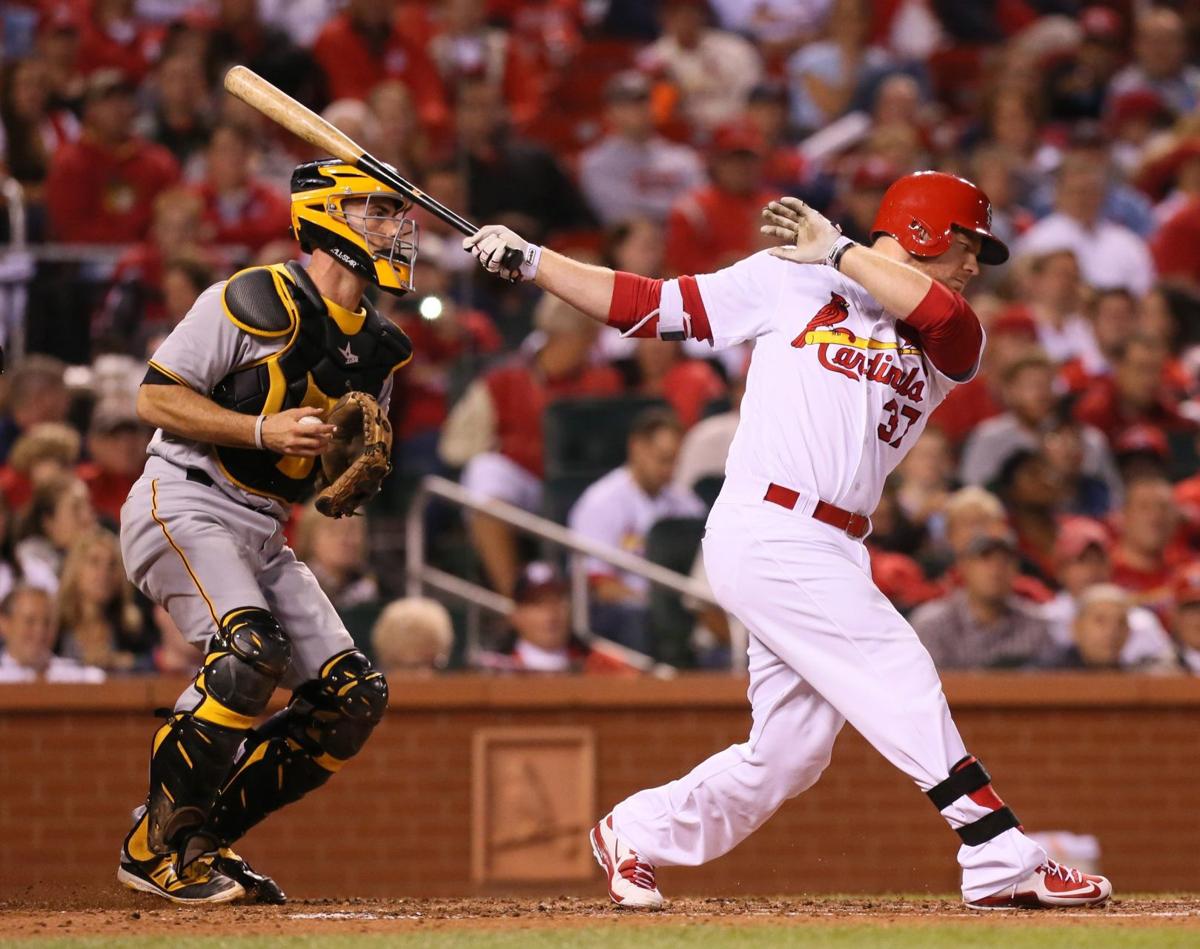Sure, players are mad that GMs aren’t handing out seven-year deals like merit badges anymore, but it’s hard to take Friday’s agent-rhetoric — specifically threats of a spring training boycott — seriously when one of their brethren spoke the truth on TV this week, basically admitting:
“We screwed up.”
As such Brandon Moss probably isn’t the most popular player among his peers at the moment, having heaped the blame for this free-agent freeze-out on the Players Association for giving too much ground in agreeing to the current collective bargaining agreement.
But Moss, recently traded from the Royals to the A’s as he enters the second year, of a two-year, $12 million contract, was dead-on in saying the new CBA doesn’t have enough incentive for owners to spend big on free agents.
Quite the opposite, in fact.
Here was his explanation on the MLB Network’s Hot Stove show. It was shockingly candid and essentially said that if players should be mad at anybody, it’s Tony Clark, head of the Players Association.
“We have the right to bargain and set our price, just like the owners have the right to meet that price,” Moss began. “But what we’ve done is we have incentivized owners; we have incentivized teams to say, ‘We don’t want to meet that price. It costs us too much. It costs us draft picks. It costs us international signing money.’
“And the only reason those things are there is because we bargained them in. I feel like, as players, we have to watch out for our own interest. If you run too good of a deal out there in a bargaining agreement, then of course the owners are going to jump on it. You have to be willing to dig your heels in a little bit, fight for the things like the guys in the past fought for.
“I just hate to see players like me taking advantage of a system that was set up for me by other players, and not passing it along to the next generation of players. Everybody wants to look up and scream collusion. Sooner or later, you have to take responsibility for a system you created for yourself. It’s our fault.”
With that out there in the public forum, how would the players justify a spring training boycott, which would be a violation of the same collective bargaining agreement?
For that matter, how would they justify such action under any circumstances at the moment?
Why, because the Red Sox want to draw the line on a J.D. Martinez contract at $125 million? Nobody will give Yu Darvish a seven-year contract — or Eric Hosmer an eight-year deal?
Obviously those high-profile stalemates don’t properly explain why more than 100 free agents remain unsigned in this offseason like nobody has ever seen. But it’s not like there aren’t big-money offers out there to top players, whose signings often unclog logjams for lesser players at their position.
So maybe this offseason has more to do with agent Scott Boras, who represents a handful of top free agents, refusing to lower his famously-high price tags than anything else.
Is it really collusion if GMs are smarter now, armed with analytical information that allows them to evaluate players more effectively now, info that tells them it doesn’t make sense to pay huge amounts of money for a player’s declining years in his 30s?
I’m not saying the players don’t have a right to question the owners’ intentions, especially having proven them guilty of collusion before. But that was some 30 years ago.
Analytics have changed everything about the way teams do business now, and at least partly as a result, there is more emphasis on youth than there has ever been.
As such the ultimate solution for the players would be to fight for a change in the system as well — lower the free-agent requirement to, say, four years in the big leagues instead of six so that many players would go on the open market with their prime years still ahead of them.
Owners would go to war over such change, in particular because it would create more of a divide between large and small markets, but one way or another, players are going to have to fight to take back concessions they’ve made in recent negotiations.
That’s for 2021 at the earliest, however, when this CBA expires. In the meantime, let’s see how this stare-down between teams and players turns out. Teams were quick to spend on relievers this winter, paying set-up men like never before because they see value there.
As Moss said, players put themselves in this position. But beyond that, if they have to settle for shorter-term contracts because teams are learning from mistakes of the past, is that really such a bad thing for baseball?




